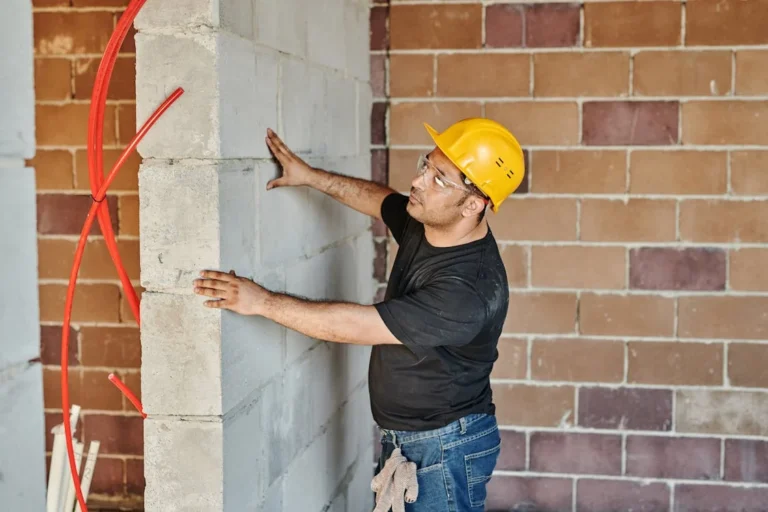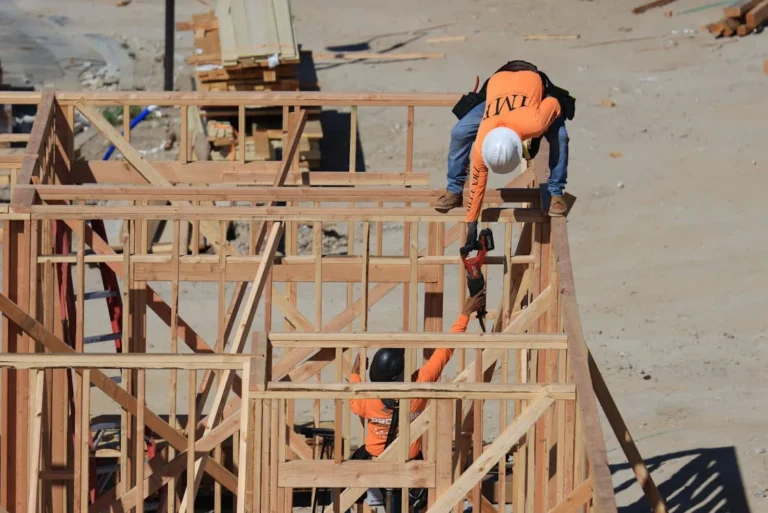To say that planning is not utilised enough within the general public landscape would be an understatement. We often ignore the benefits of thinking carefully before we make decisions and in the process end up with less than satisfactory outcomes than initially hoped for.
From work, to life and other areas, cultivating a plan to achieve something is the key to success. Perhaps the ease at which tasks can be engaged means that it is simple to ignore making a plan, but what is certain is that only positive outcomes can be gained from engaging in planning.
This is particularly the case in employment. In a job you would have tasks and/or objectives you would need to complete by a certain date. Taking the option of working as challenges come along is certainly not a sustainable model. What is more beneficial is developing a plan to meet those tasks and objectives.
The construction industry and planning go hand in hand. You could even make the case that without planning, the industry would be obsolete. The infrastructures put in place ensure that there is a level of quality and safety present that cannot be disputed. This comes from having a solid plan in place to achieve client desires whilst eliminating pain points and hazards.
Plans are handled by a number of individuals, since there are different functions and tasks that need to be completed by varying professions. For example, an electrician may have a strategy to achieve a task, which would most certainly differ from the plan of a carpenter.
What all participants in a construction project follow, however, is a general construction management plan. This plan would be designed to see through everyone involved in the project from start to finish, and make sure there are no gaps or missing pieces to be filled. With this, accountability is an encompassing tenant that everyone must abide by.
A construction management plan is handled by a construction manager. To simplify their role, construction managers plan, organise, direct, control and coordinate construction of civil engineering and building projects, and the physical and human resources involved in the construction process. Some of the tasks defined include:
- Coordinating labour resources, and procurement and delivery of materials, plant and equipment
- Consulting with Architects, Engineering Professionals and other professionals, and Technical and Trades Workers
- Negotiating with building owners, property developers and subcontractors involved in the construction process to ensure projects are completed on time and within budget
- Preparing tenders and contract bids
- Operating and implementing coordinated work programs for sites
Developing a construction management plan is a concept that can be difficult to grasp. This blog stands as an introduction into writing construction management plans and will give you a general grasp as to how to tackle them.

Comply with codes of practice
One of the more important things to consider when writing a construction management plan is to make sure the plan follows standard codes of practice. These codes of practice will cover areas of concern that must be adhered to in order to successfully deliver a construction project. Some of the codes of practice include:
- public safety, amenity and site security
- permitted hours of building work
- noise and vibration controls
- air and dust management
- stormwater and sediment control
- waste and materials reuse
Incorporate permits
Whilst beginning a project can be exciting, it won’t be as exciting if you discover you did not have legal authorisation to perform the work. Permits are by and large a significant fixture of construction; as mentioned earlier, the industry strives for a high level of quality and safety. You must ensure you have the necessary permits as part of your plan, which will mean the plan is much more likely to be realised. Some of the permits you might need to obtain are as follows:
- Vehicle Crossing
- Road Opening/Drainage connections works
- Occupy Road/Council land
- Hoarding
- Tree removal/Landscaping
Cover all necessary checklists
Most construction management plans will need to have a list of items that must be accounted for. These can be performatory or administrative. There a quite a few checklists that you could make part of your plan such as:
- Detail the scope of the works to be completed including details of the various stages, e.g. Demolition, Excavation, Construction etc. and the duration of each stage.
- Identify local traffic routes to be used by construction vehicles.
- Identify ways to manage construction works to address impacts on local traffic routes.
- Detail how construction workers will travel to and from the site and parking arrangements for those that drive.
- Identify any proposed road closures, temporary traffic routes, loss of pedestrian or cyclist access or reversing manoeuvres onto a public road and provide Traffic Control Plans (TCPs) prepared by an accredited RMS Red or Orange card holder to manage these temporary changes.

Follow the stages of developing a construction management plan
Whilst it is imperative to know what to include in a plan, it won’t get you far if you are unaware of how to proceed with developing it. There are stages to writing a construction management plan, which also take into account different components that form the plan. The stages are:
- Feasibility and design: goals and desired end results become clear, and choices for use and purpose are discussed. Schematics and subsequently design development and contract documents also form part of this section.
- Pre-construction: this stage precedes the main part of construction and is where a notice to proceed is given, and a project team is formed of specialised professions.
- Procurement: This stage involves more financial aspects as labour, materials and equipment are bought for use.
- Construction: the final and main stage where everything comes together and the actual project commences. Although this stage is more hands-on, planning also comes into play as the work conducted on a day to day basis is mapped out.
Choose a type of construction management plan
Construction management plans don’t all fall under one category. They can be different depending on purpose. The main types of construction management plans are:
- An overall plan: This can be categorised as a simple but sophisticated plan used to detail the process of a construction project from start to finish.
- Detailed building plan: This plan is more specialised as it focuses on tasks, schedules and costs that can be incurred by a construction project, and helps construction managers determine how to best tackle a project.
- Environmental plan: this plan involves surveying the land and area surrounding the location of a project, which will give further information as to how the project will commence within the given parameters.
A good construction software makes use of good project management functionality, estimate and financial/accounting tool functionality, job management, scheduling and planning and support functionalities and more. WunderBuild is a construction management software that aims to provide all of these functionalities and more to bring out the best outcomes for a project.
It is currently offering a free trial, visit here to try WunderBuild for free.




